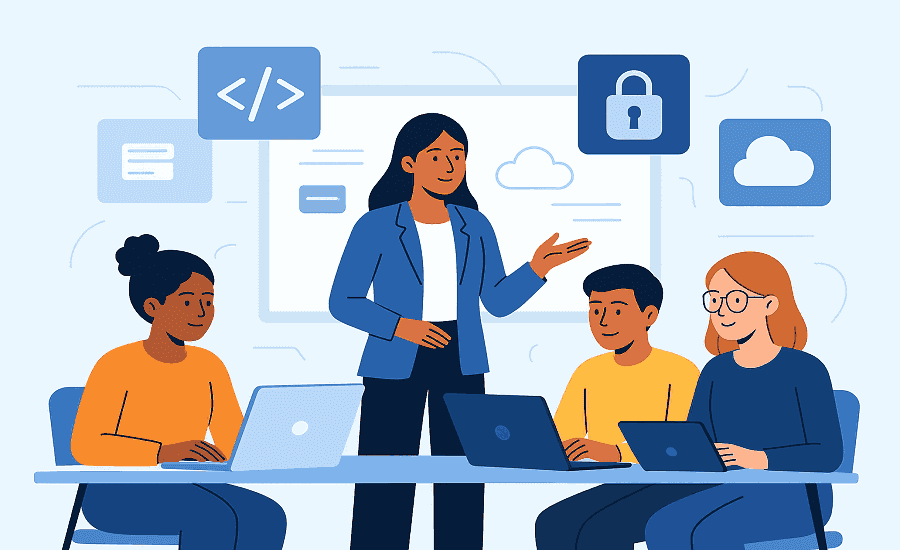Partnered Content
Knowing how to operate and use a computer is no longer enough in today’s digital world; you should be able to learn beyond basic computer use, browsing, and using common software. You should know how to use different tools, understand systems, and adapt to new technology. As an employer or educator, you should teach digital skills beyond basic computer use. Here, we have discussed how you can teach advanced digital skills beyond basic computer use to prepare individuals to not just use technology, but lead with it.
Start with a Digital Mindset
Before teaching complex tools and skills, focus on developing a digital mindset. Start by encouraging curiosity, adaptability, and a willingness to learn new systems. Your job is to make learners accept and be comfortable with exploring unfamiliar platforms and troubleshooting problems on their own. For instance, rather than simply teaching how to use MS Word, help them understand how certain functions work, what formatting is, and how you can do it, and how similar functions appear in Google Docs and other software.
Internet Literacy and Online Research
You should teach individuals how they can navigate the internet intelligently because it is one of the most vital yet underrated digital skills. Teach them to go beyond Google to use credible sources for information, fact-check information, and avoid misinformation. Practical exercises can include teaching them to compare information from multiple sources, identifying reliable domains, and understanding how search engines rank content. In a world where you are surrounded by digital noise, critical thinking is a valuable tool.
Data Management and Digital Organization
Digital productivity lies in data organization, and this is what you should teach to individuals and new learners. Despite data organisation being so important for digital productivity, many people struggle to name files logically, manage folders, or back up data securely. You should teach learners how they can create structured folder systems, use spreadsheets for tracking information, back up data using cloud storage, and manage emails effectively. This can boost their efficiency and prevent costly mistakes in the future.
Digital Communication Etiquette
Most of the communication these days has gone digital, and understanding how to do it professionally is a key skill. Every digital communication channel, including emails, messaging apps, and virtual meetings, has its own rules and tone. You should train learners to write clear and respectful digital messages, use proper subject lines and signatures, and improve typing through TypingTest.co, manage video calls effectively, and recognise when to use synchronous vs. asynchronous communication. Strong digital skills can make individuals more competent, collaborative, credible, and employable.
Cybersecurity Awareness
Cyber threats are a reality, and everyone needs to understand how they can protect themselves and their systems from cyber threats. You should incorporate cybersecurity into digital training sessions so that learners know how to create strong passwords, use password managers, recognise phishing emails and scams, avoid unsafe downloads, and understand data privacy. Empowering learners to stay safe digitally is one of the most practical and best digital lessons you can teach.
Basic Tech Troubleshooting Skills
Individuals should be able to solve small tech issues on their own instead of panicking when an issue arises, a program crashes, or the Wi-Fi drops. A key sign of digital confidence is being able to solve small tech issues independently and troubleshoot them. You should teach learners to diagnose and fix basic problems, and how they can use online forums, tutorials, and support pages effectively. Troubleshooting skills can build resilience and make you confident, which are essential traits in a changing digital environment.
(This is a third-party article, and Indian Masterminds is not liable for any of the details mentioned.)





























